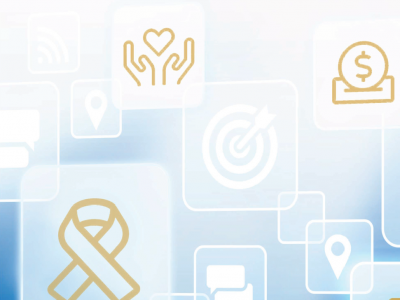Sarah Todd holds a Master of Philanthropy and Nonprofit Leadership from Carleton University and is a Program Officer at the British Columbia Arts Council, which nurtures and supports arts and cultural activities in communities across BC.
![]() How has COVID-19 impacted the work of your organization?
How has COVID-19 impacted the work of your organization?
 My work has been altered drastically. Cultural organizations have been hit hard by the pandemic. Many have a high fixed costs, rely on admissions and event-based revenues to survive, or operate close to the bone at the best of times. The BC Arts Council established an easy-access relief program, called the Arts and Culture Resilience Supplement, for clients, and is providing advances on annual grants. Also, government is often stereotyped as being slow and stodgy (for good reason), but it’s been interesting to witness how quickly government systems can adapt and respond to an emergency. While the BC Arts Council is carrying on with providing funding to BC artists, arts practitioners and arts organizations, everything has now been filtered through a lens of COVID-19 relief. We’re looking closely at how we can foster resilience within the community.
My work has been altered drastically. Cultural organizations have been hit hard by the pandemic. Many have a high fixed costs, rely on admissions and event-based revenues to survive, or operate close to the bone at the best of times. The BC Arts Council established an easy-access relief program, called the Arts and Culture Resilience Supplement, for clients, and is providing advances on annual grants. Also, government is often stereotyped as being slow and stodgy (for good reason), but it’s been interesting to witness how quickly government systems can adapt and respond to an emergency. While the BC Arts Council is carrying on with providing funding to BC artists, arts practitioners and arts organizations, everything has now been filtered through a lens of COVID-19 relief. We’re looking closely at how we can foster resilience within the community.
![]()
What are steps your organization is taking to adapt to the COVID-19 crisis?
Listening to the sector has been the most important step. I’ve been constantly on the phone for months, and the information from those calls, along with data sets collected through the CADAC (Canadian Arts Data) system, has been instrumental in making decisions about how best to assist. The arts and culture sector in BC is incredibly diverse, so understanding the issues is as important as establishing a bird’s-eye view of the situation.
![]() Which changes or insights do you think are here to stay?
Which changes or insights do you think are here to stay?
The initial outpouring of support for the non-profit sector will slow, and there will be a new financial landscape. While the situation has galvanized public investment, with ongoing government assistance, I think in reality (perhaps cynically) we’re going to see an increase in public-private partnerships. Ultimately, the rise of philanthropy will continue and will hold more power than before. Organizations will have to navigate this landscape. Also, the COVID-19 crisis has demonstrated the importance of the non-profit sector establishing an ethics of care. How do we better provide for nonprofit workers? How do we mitigate mission drift in chaotic times? How do we foster diversity and inclusion? How do we access and develop philanthropy sustainably and ethically? The sector must advocate not only for its work but must advocate for the people who do the work.
![]() How could sector leaders help?
How could sector leaders help?
The crisis is demonstrating the importance of providing decent work, including medical benefits and sick days. It’s becoming increasingly untenable for the non-profit sector to continue to rely on precarious labour. Implementing best practices around decent work is an essential skill set for leadership, especially now, when we’ve learned the hard way. And with the increasing dependence on philanthropic funding, the sector needs to be critical of donations types and how these impact our work. Developing skills related to building relationships, establishing boundaries, conducting difficult conversations, and negotiating with donors and funders will be essential for strong nonprofit leadership in the future.



